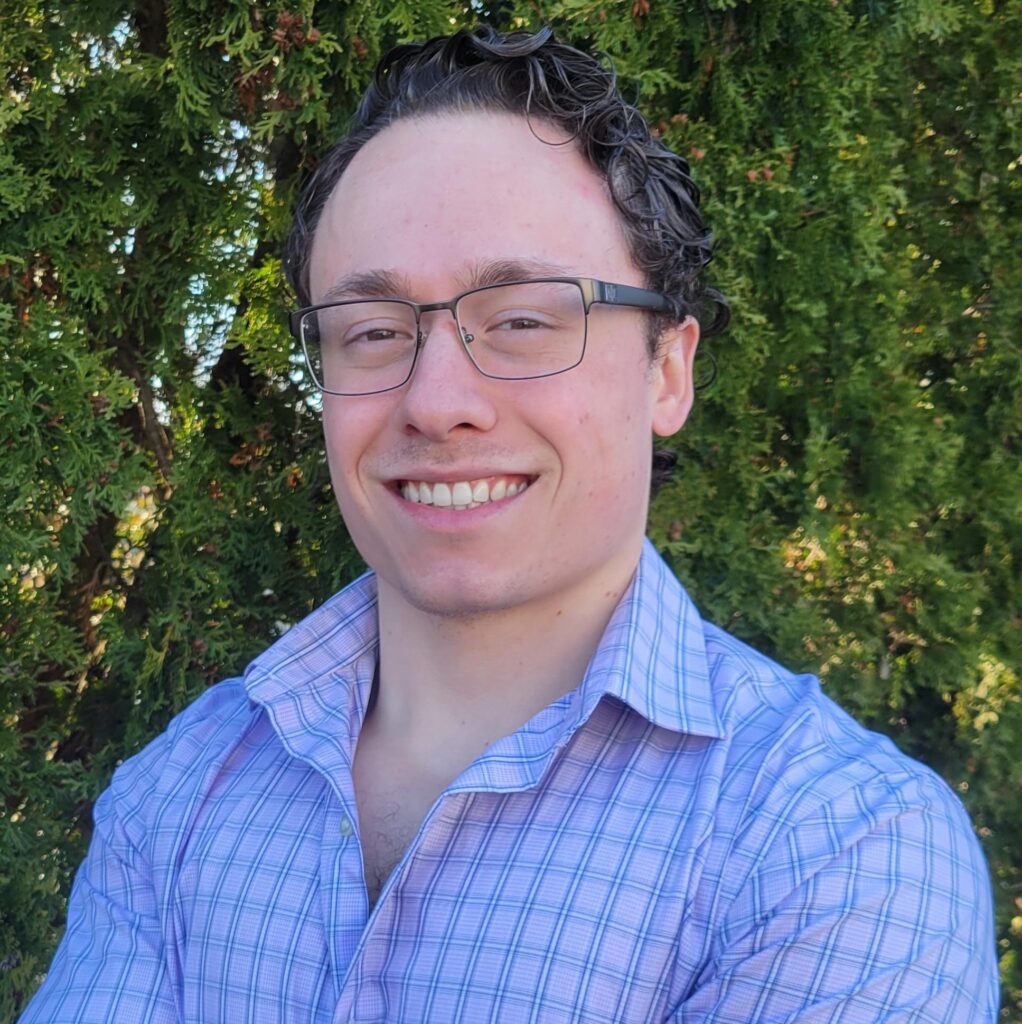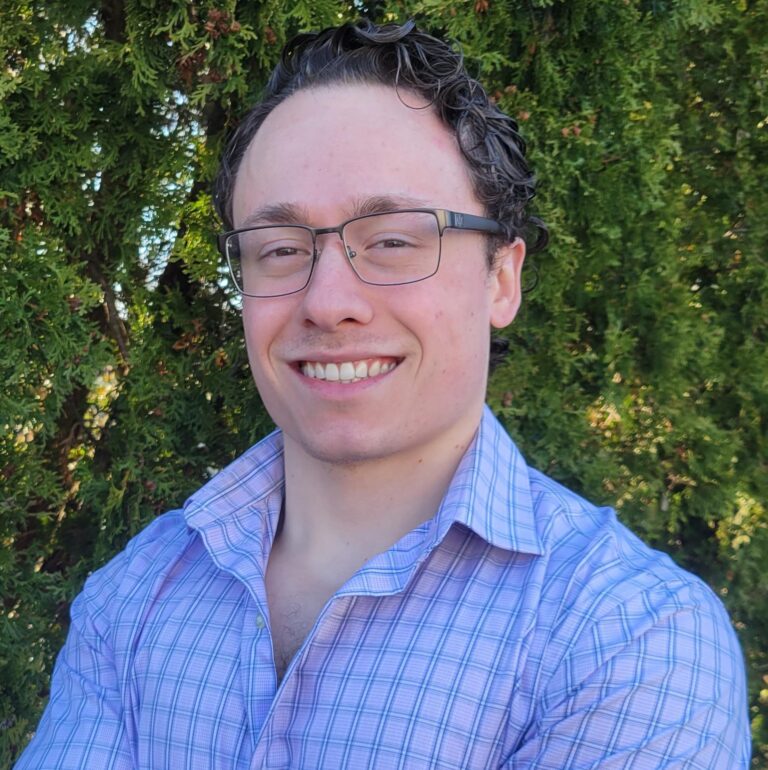Year: Third-year
Area of Study: Medical student (MD)
As a first-generation medical student, Nicholas Bank is familiar with how intimidating applying to medical school can be. Despite his hesitations as an applicant and lack of personal connections in the field, he had his sights set on pursuing a career in medicine—and worked diligently to make that dream a reality.
Now, Bank is a mentor for First-Generation Medical Students at Case Western Reserve University School of Medicine, a student organization through which he enjoys supporting first-gen medical students and helping them find resources—at CWRU and beyond.

With past work history as a personal trainer and an interest in anatomy, Bank initially considered studying physical therapy. But, drawn to an exciting, create-your-own-adventure element, he ultimately found his fit pursuing medicine at Case Western Reserve.
“There is so much about this field to be passionate about,” Bank noted. “At its core, your purpose is to quite literally improve the lives of others. But what makes medicine unique and exciting is that it affords so many paths to achieving that goal. There are countless opportunities for contribution to the field and the health of our patients.”
In his time at Case Western Reserve, Bank has dabbled in a little bit of everything. He’s immersed himself in hands-on opportunities, including conducting basic scientific research on inflammatory bowel disease and investigating clinical outcomes in spine surgery. Additionally, Bank participated in the Dr. Edward J. and Nancy M. Mueller Health Innovations and Entrepreneurship Pathway program.
As a part of the pathway program and with the support and guidance from program mentors Mahmoud Ghannoum and Joseph Jankowski, Bank built a nonprofit from the ground up while still in medical school. During the height of the pandemic, his organization, Schools for Slowing the Spread Inc., served as a vehicle for health literacy, humanitarianism and social responsibility.
The organization raised funds to support COVID-19 response initiatives within local communities and encouraged proactive social-distancing behaviors.
Bank struggled with the behind-the-scenes aspects of running his nonprofit—such as managing accounting, supply chain management, contraction negotiation, marketing and website development—but he pushed through.
“It has been an equally challenging and rewarding adventure to be where I am today,” Bank reflected, “and I am grateful to the CWRU community for the support and guidance I’ve received along the way.”
As he continues to manage his nonprofit, Bank encourages student organizations and academic departments to get in touch with him if they’d like to partner for custom merchandise, such as face masks. All profits are donated to charitable causes, such as the CWRU Student Emergency Fund.
Motivated by his passion for learning, building and experimenting, Bank hopes to begin a residency in orthopedic surgery when he graduates.

